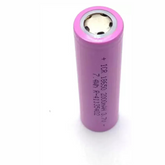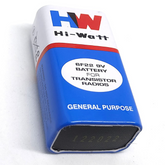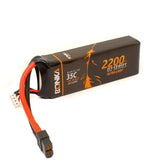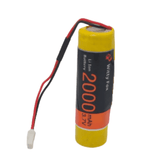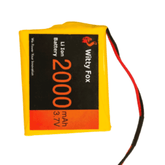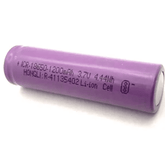Safe Disposal of Batteries
Summary
In this informative blog post, we explore the essential aspects of battery usage and disposal. Discover the three key methods to safely dispose of batteries, and learn why it's crucial to handle old batteries correctly. We delve into the world of single-use and rechargeable batteries, as well as the unique considerations for automotive batteries. With responsible battery use, care, and disposal practices, you can protect the environment and ensure safety. Don't miss out on these valuable insights for a cleaner, greener future. Read now!
How to Dispose of Batteries
When it comes to disposing of batteries, the only responsible action is recycling. While throwing them in the regular trash might seem like an easy solution, this unfortunately leads to harmful chemicals being released into our environment - not something any professional should endorse! For those looking for a more eco-friendly alternative, there are numerous convenient ways you can recycle your old and used batteries.
First off - many cities have provided special containers near electronics stores or supermarkets where you can drop off dead battery cells. This ensures that all components will be properly disposed of in accordance with local regulations so no harm will come from their disposal.

In addition to municipal collections points some retailers themselves offer take back services for expired rechargeable batteries; make sure check if yours does too before assuming they don’t as these options may sometimes go unnoticed! Further still – most producers today provide online tools which allow users trace down and reach out directly specific outlets willing accept spent energy sources: taking advantage one such systems minimizes risks associated improper waste management while helping protect both our planet people who inhabit it alike!
read more : All About Lithium Polymer Batteries (LiPo)
Responsible Battery Use, Care And Disposal
As a responsible consumer, it is essential to understand the importance of properly managing our batteries. Proper battery use, care and disposal are key components in maintaining their efficiency over time – which helps conserve natural resources as well as maintain the environment.
With respect to usage, we should ensure that electrical circuits providing power for charging or using electronic devices do not overload when connecting multiple items at once; this will help preserve battery life and reduce energy consumption. Additionally, by regularly checking electrolyte levels during maintenance intervals (if applicable) would serve in further preserving its longevity.
In terms of storage it is best to keep them away from extreme temperatures either too hot or cold so they can retain optimal working condition but also be wary when transporting - always make sure you’re abiding with regulations regarding safe shipping practices provided by your country/region's governing body beforehand! Finally for those end-of-life rechargeable batteries without any chance of being reused; specialised recyclers offer free collection services whilst some retail stores have recycling bins available onsite where consumers can conveniently deposit securely via plastic bags assigned specifically for used electronics/batteries before dropping into containers labelled accordingly - ensuring correct identification procedures fulfil responsible waste management techniques earmarked nationally throughout each locality.
What are 3 ways to dispose of batteries?
When it comes to disposing of batteries, there are three primary methods that should be considered. The first is simply recycling the battery at an appropriate facility; most large retail stores and electronics recycle centers will accept them for processing and disposal in a safe manner.
Secondly, you may consider purchasing rechargeable batteries instead; these can often times last significantly longer than single use models while also providing more bang for your buck in terms of energy output over several charges. Lastly, try to purchase smaller or fewer items with built-in non removable battery packs such as remote controls so they won't need replacing as frequently when disposed off into landfill/incineration facilities - always ensure any hazardous material is properly wiped clean before removal from the product!

Taking all three steps together not only ensures safer environmental practices but better fiscal viability too - making sure our planet's future generations have access to our precious resources responsibly managed now.
read more : What is AH in Battery
How to Dispose of Old Batteries the Right Way?
For the responsible disposal of old batteries, it is important to consider both environmental safety and health considerations. As such, taking proactive steps to recognize when a battery needs replacing or recycling can help reduce potential risks associated with their improper handling.
Before disposing of any dead batteries, ensure that they are completely discharged by connecting them in series with an LED lamp until the light becomes dimmed or off before putting them aside for recycling. It’s also best practice to keep all used and recyclable dead batteries apart from other waste materials as these items often contain hazardous substances like lead and cadmium which may contaminate landfills if not disposed properly.
It's recommended that you contact your local government offices for information on proper methods of disposal for non-rechargeable cells; many cities offer door-to-door collection services too! For rechargeables, look out on websites where companies provide specialised processing solutions geared towards meeting global standards – this will usually include recharging/recycling cell units into new ones while ensuring compliant material recycling practices are followed throughout its lifecycle management journey. By engaging in more sustainable approaches to battery reuse we can significantly reduce our eco footprint together!
read more : Lithium-Ion vs Lithium Polymer Battery
Single-Use Batteries
Single-use batteries are one of the most versatile and widely used energy sources in today's modern world. They offer powerful, portable power to a host of devices ranging from small toys to large medical equipment. Their light weight makes them ideal for portable applications that need reliable performance over long periods with minimal maintenance costs.

Single use batteries also come in various sizes and voltage levels providing users flexibility when selecting an appropriate source of energy for their specific application requirements. With different chemistries available such as alkaline, lithium primary cells or even rechargeable versions – there is something suitable no matter what your needs may be! To make sure you get maximum life out our single use battery packs it’s important they are stored correctly at room temperature away from any direct sunlight or heat sources; this will ensure you maximize their efficiency depending on type/chemistry purchased.
Furthermore, ultilising tried & tested suppliers like us here we can guarantee quality products backed up by proven customer service capabilities so go ahead contact us today & reap the benefits tomorrow!
Rechargeable Batteries
Rechargeable batteries are an innovation that has revolutionized many industries. Tech companies in particular have seen the massive potential of this technology and how it can be harnessed for maximum efficiency and convenience. They allow us to power our devices without having to buy disposable alternatives, giving us more control over where our resources go.

Moreover, not only do they save costs on pricey replacements in the long run but also operate with greater longevity than standard batteries while reducing environmental impact by minimizing waste production. Additionally, they come equipped with advanced safety measures - such as auto-shutdown technology which turns off supply if current is too high or low - eliminating hazards posed by bad connections between source and device significantly improving user experience overall . All these advantages combined make rechargeable batteries a must-have item today's fast moving tech world!
read more : Automatic Battery Charging Circuit
Automotive Batteries
Automotive batteries are an integral component of any vehicle, providing the necessary power source for ignition and electrical systems. As such, they must be reliable and capable of withstanding harsh environmental conditions. Modern automotive batteries come in a variety of sizes/styles to accommodate different makes/models while offering improved performance over older models due to advances in technology and materials used during production.

This includes higher capacity ratings that bear longer shelf life or hardiness against vibration from traveling off-road surfaces as well as increased resistance against corrosion without sacrificing durability. Furthermore, advancements have also been made on battery enhancements including built-in monitor system capabilities like water level gauges for visually monitoring charge levels at all times or emergency lights warning if voltage drops below certain threshold limits - invaluable features when driving long distances away from home!
Conclusion:
The safe disposal of batteries is not just a matter of convenience; it's a responsibility we all share. By understanding how to dispose of batteries properly, practicing responsible battery use, and caring for their safe disposal, we can make a significant impact on the environment. From recycling programs to drop-off locations, there are three convenient ways to dispose of batteries. So, whether you're dealing with single-use batteries, rechargeable batteries, or even automotive batteries, remember that our collective efforts can power a more sustainable future. Start making a difference today, one battery at a time! Click here to learn more about eco-friendly battery practices.
If you appreciate our work don't forget to share this post and leave your opinion in the comment box.
Please do check out other blog posts about Popular electronics
Make sure you check out our wide range of products and collections (we offer some exciting deals!)



